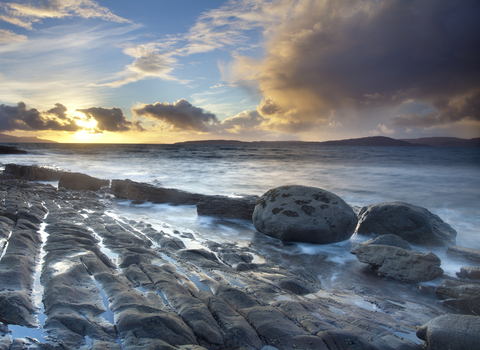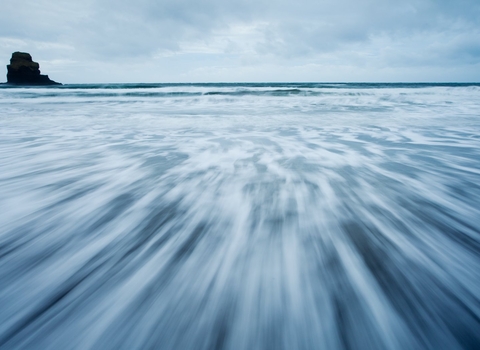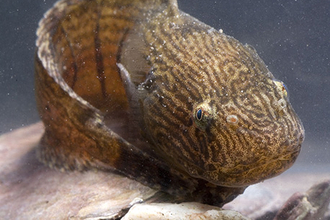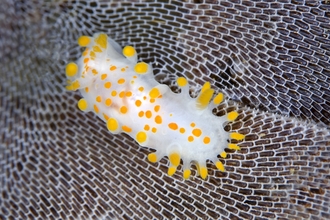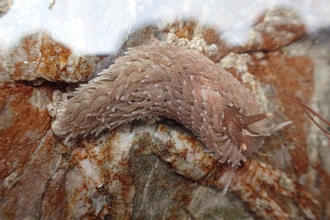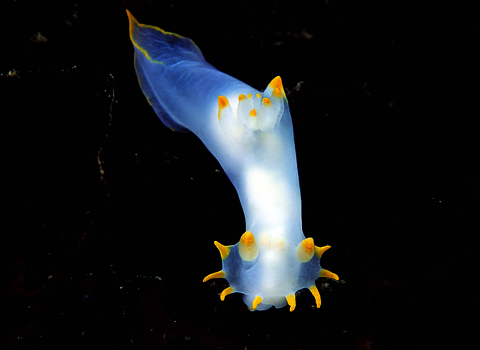
Paul Naylor
Yellow edged polycera
The UK is home to so many incredible sea slugs, like this elegant nudibranch.
Scientific name
Polycera kernowensisWhen to see
April - October.Species information
Category
Statistics
Up to 2cm long.Conservation status
Common.
Habitats
About
The yellow edged polycera has a translucent body with dashes of bright yellow. It appears as if it was created by a talented artist!The scientific name, Polycera kernowensis for this slug comes from the Greek words “polys” and “keras”, meaning “many” and “horns”, while “kernowensis” is derived from the old name for Cornwall, where the slug is commonly found.
How to identify
Translucent white body with bright yellow tips to confined to appendages and dorsal line on tail. The two lobes either side of the gills (half way along the slug’s back) are simple, without tubercles and with a single point. Very similar species to Polycera faeroensis and Polycera quadrilineata.If you are recording your sightings as part of a recording scheme, make sure to include clear photographs to help verifiers confirm your sighting.
Distribution
Common in south and west Britain.Did you know?
Most nudibranchs are carnivorous, often feeding on bryozoans, sponges, and anemones!How people can help
Always follow the Seashore Code when rockpooling, be careful to leave everything as you found it - replace any rocks you turn over, put back any crabs or fish and ensure not to scrape anything off its rocky home. If you want to learn more about our rockpool life, Wildlife Trusts around the UK run rockpool safaris and offer Shoresearch training - teaching you to survey your local rocky shore. The data collected is then used to protect our coasts and seas through better management or through the designation of Marine Protected Areas.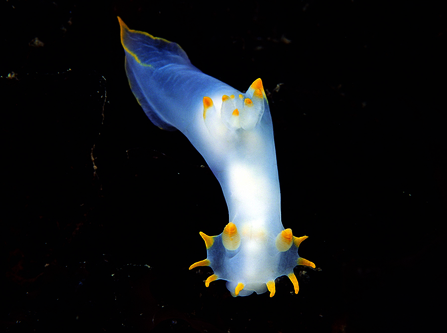
Paul Naylor

